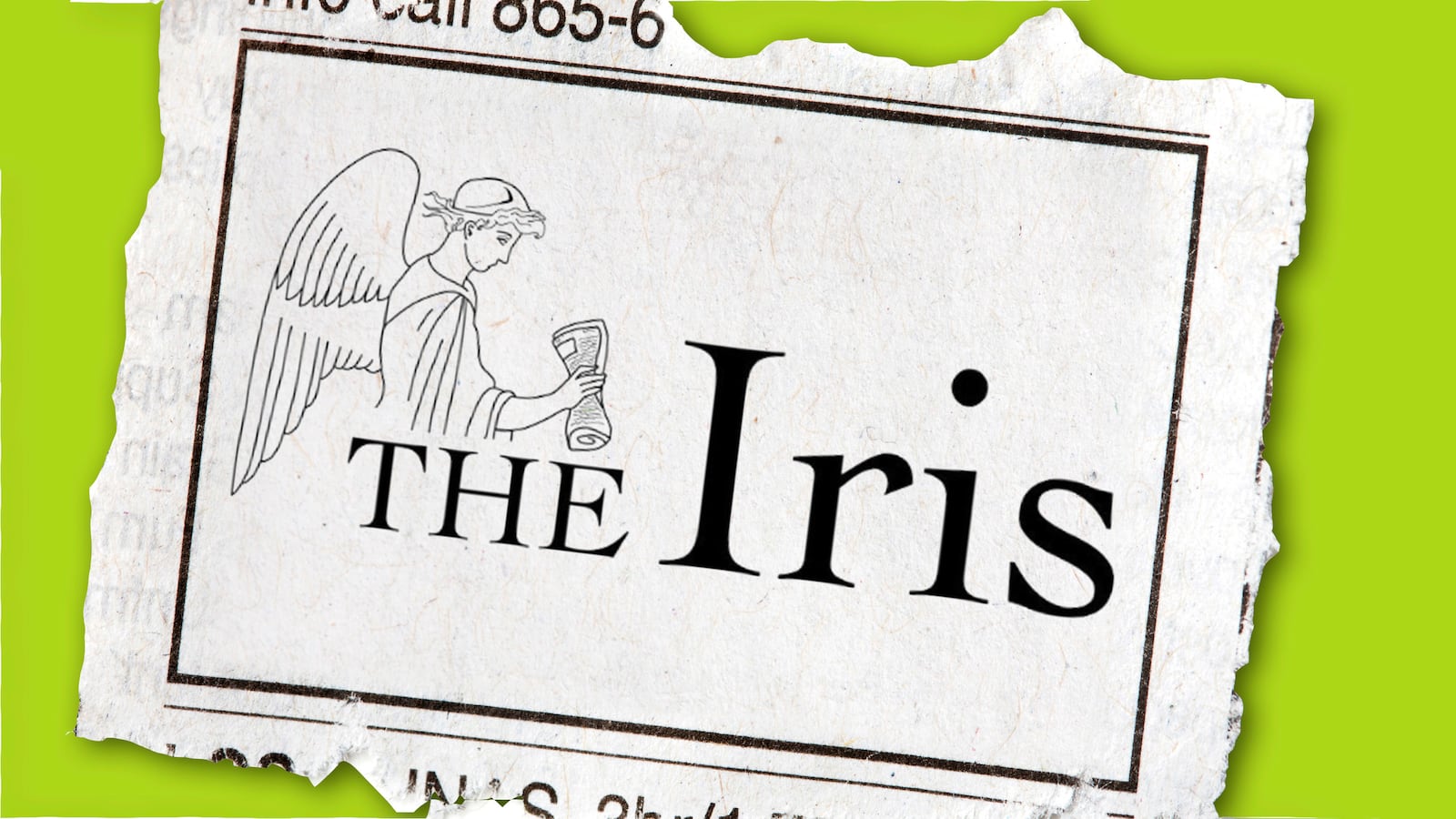The teenaged kids of some of the biggest names in New York’s media elite—Chris Cuomo, George Stephanopoulos, and others—have teamed up to start an online publication bridging the traditional style of their parents’ generation and the Gen-Z focus on fighting racism and inequality at all levels of society.
In July, amid the coronavirus pandemic, Lily Wolfson and Ryan Pelosky, two New York City high-school students, decided they wanted to launch an online newspaper for teens. They emailed a network of friends they knew through school, extracurricular activities, and social occasions, and enlisted a few dozen peers from across the city to help launch The Iris, a New York-based digital newspaper.
The resulting website is a student newspaper on steroids. The Iris has glossy sheen and a fairly sleek design, and is packed with opinion articles, reported local and national news pieces, interviews, features, and even a crossword puzzle.
But more noteworthy for the casual observer is the editorial masthead, which reads like a who’s who of elite American media families.
Elliott Stephanopoulos, daughter of famed ABC anchor George Stephanopoulos and actress Ali Wentworth, is an executive editor on staff. Bella Cuomo, the teenage daughter of CNN primetime star Chris Cuomo and niece of New York Gov. Andrew Cuomo, is the national news editor. Other teens on the masthead come from the families of major media industry titans and Wall Street executives and power-players. (The Daily Beast is reporting the teenagers’ names as they have publicly put their names on the masthead of the website, which they intend to be read by news consumers of all ages.)

Elliott Stephanopoulos’ parents are Ali Wentworth and George Stephanopoulos
Rob Kim/GettyAnd while some of their parents may be part of a more traditional, corporatized media world that often shies away from openly taking sides in clear-cut moral issues like institutional racism and climate change, The Iris seems to have no such reservations.
With a decidedly “woke,” left-leaning editorial tilt, the paper is not shy about tackling tough social issues and telling stories from the perspective of disadvantaged groups. The site’s mission statement says it is dedicated to uplifting marginalized voices, and declares that the newspaper is “actively anti-racist and anti-discriminatory.”
The editors-in-chief said the goal was not necessarily to launch an ideological publication, and said they are committed to publishing a range of perspectives and opinions. And ultimately, they said, their No. 1 objective is to raise awareness of stories that normally might not get a lot of mainstream attention. And so, naturally, the paper gravitates toward narratives about underprivileged and abused individuals or communities.
“Our intention is to shed light on underreported stories,” Wolfson said. “Whether that be social justice or Somali farmers, we’ll always place priority on underreported stories.”
Staunchly advocating against racism and the institutionalized racial disparities in government and policing is a dominant theme for the publication. Its authors have argued in multiple op-eds for the removal of Confederate and other racist statues, teaching American children about the racist and violent side of U.S. history, have championed solidarity among minority and oppressed groups, and openly explored how Donald Trump enables white supremacy.
The ostensibly wealthy, elite young journos have also dipped their toes in reporting on income and wealth inequality, running op-eds against the school-to-prison pipeline and against standardized testing, saying such tests unfairly benefit the wealthy and privileged. Some of its writers have argued in favor of affirmative action and taxing the rich, a policy that would negatively impact the pocketbooks of many of their own families. The site has also advocated for the benefits of legalized marijuana, and tackled local issues like the need to reform the Central Park Zoo to improve its treatment of its captive animals.
The paper seems to have fewer of the concerns that their parents’ news organizations have about the dividing lines between news and opinion, with many of the students writing for both the news and opinion sides of the outlet.
The news product itself is somewhat unique for a student newspaper in its breadth of coverage, reporting on news from all over the globe. The student reporters write explainers about developments in the European Union right alongside stories about U.S. national politics and local news about popular business openings and New York school reopenings.
Such editorial content is a direct byproduct of the staff’s recruiting efforts. The newspaper now boasts writers in over a dozen different states, and the editors said they recently enlisted writers in the Philippines, Morocco, and, in one case, Jamaica, after a writer reached out after seeing their stories on Instagram. The editors started a partnership with the Syrian Youth Empowerment organization, and plan to run several stories by Syrian and Iraqi high-school students about their experiences growing up in the conflict zones.
The kids have also scored some interviews with high-profile (if somewhat overly media-friendly) subjects. Just after the publication’s launch, the site’s editor conducted an interview with former Democratic presidential candidate Andrew Yang. The paper used the interview to nab a virtual sit-down with insurgent New York Democrat Jamaal Bowman just after his stunning upset of 12-term congressman Eliot Engel in the party primary. Indeed, the site got onto the radar of The Daily Beast after the founding duo sent copies of The Iris to various reporters and national news organizations, and were promoted on social media by both Bowman and Yang.
While the publication is completely run by Wolfson and Pelosky, who dreamed it up during the slow 2020 COVID summer, parental connections have undoubtedly given the paper a slight advantage over the average high-school extracurricular journalism project.
Pelosky said they took out a loan to print 500 copies of the paper in black-and-white once a month, but that they actually plan to start making revenue to offset the printing and shipping costs. Perhaps more importantly, familial connections have also helped the crew score interviews with a big-time Broadway producer and Yang (Pelosky’s au was a friend of Yang’s in college, and Ryan worked on his outsider 2020 presidential bid).
And The Iris staffers are fully aware that they are the beneficiaries of privilege. Pelosky admitted that some strangers online have already criticized the teenagers and their outlet with charges of nepotism.
Still, they are determined to blaze their own path with as little parental intervention as possible. Pelosky pointed out that none of their iconic, heavy-hitting media parents have promoted the paper, and that they have not solicited any attention or help from the high-profile parents of other kids on-staff.
“We don't want any adults who may or may not have an agenda, anyone who is not a teenager, to put their hands on this,” Wolfson said. “That is a source of pride for us.”

